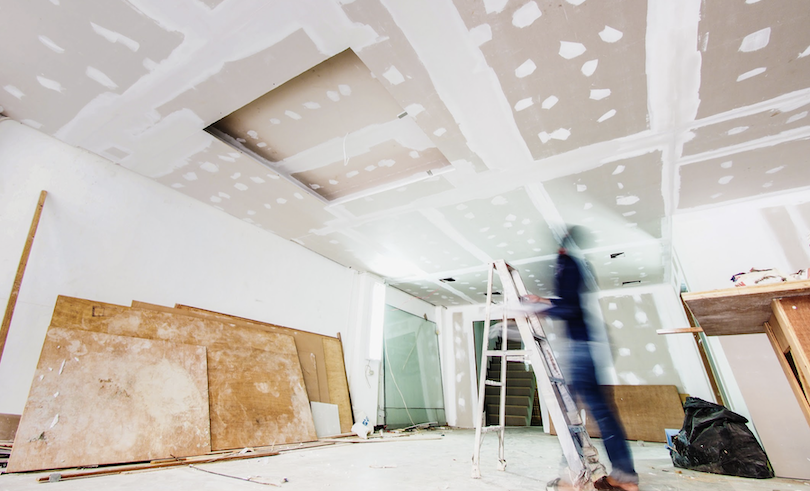Insulation is a thick barrier that prevents heat, sound, or electricity from escaping a confined space. It helps to capture the state of temperature movement in a confined space to make them more effective. When people think of insulation, what mostly comes to mind is how it can keep you warm during the winter season, but the reality is insulation could be responsible for keeping you right in all seasons. For instance, for many businesses, cutting down on energy expenses will definitely yield more profit. With that said, getting your office insulated will not only keep you warm but will also significantly reduce your energy bills.
Below is how office insulation can help reduce your energy bills:
1. Attic Insulation Reduces Energy Consumption
If you’re among those people with an under-insulated office, performing an attic insulation can help you sustain a comfortable cool and heating temperature needed throughout your office. You can save money on your energy bills with the right attic insulation supplies. Insulating your attic properly will prevent the air from inside your office to escape outside and likewise stop the air from outside from entering.
For many businessowners, their heating and cooling expenses makes up to half of their office’s energy bill. The Department of Energy estimates that a correctly insulated attic can reduce your heating bill between 10-50%. A poor attic insulation can lead to hot and cold air escapes in your office. Your energy’s home efficiency can be increased with a properly insulated attic.
Besides, attic insulations are made from different materials, such as fiberglass batts, cellulose, loose-fill fiberglass, and spray foam. Using cellulose insulation when you need loose-fill fiberglass might make insulation results less effective. Your technician is in the best position to recommend the material that will suit your needs and space.
2. Insulation Reduces Heat Conduction
Conduction occurs when there’s the transfer of heat between substances that have direct contact with each other. A well-insulated office will be resistance to conduction. This means insulation can create a barrier between objects that decreases heat transfer by reducing the thermal conduction level. However, the insulating resistance level to retain heat flow greatly depends on its R-value rate.
A higher insulation R-value means better energy efficiency for your office. On the other hand, a high energy bill may be a result of a low R-value insulation. An office that is running on a high energy bill may run the business down. Hence, you need to invest in insulation as they are bad conductors to get the most out of your thermal resistance device.
The thickness and the denseness level of the R-value of an insulator will determine its ability to resist heat flow. Materials used for the insulation must have an extremely low small heat conductivity to be effective. Spray foam, fiberglass and cellulose are the common insulation materials that reduces heat conduction.
3. Insulation Prevents Heat Convection
Convection is the transfer of heat energy when the movement of a heated fluid such as air or water occurs. It causes warm air to rise and cool air to descend. Insulation can help you to slow down the process of convection in your office by trapping the air from escaping outside. The effect of convection is mostly felt during winter period as your office will be freezing cold due to the loos of heat air.
Its effects will drastically increase your energy bill as your heater will work harder to keep your office warm. Your office needs to be properly insulated to be put in an airtight condition. To achieve this, opt for attic insulation because the thermal insulation of the roof or ceiling is substantially important to avert the loss of heat.
A comfortable working environment will maximize the productivity of your workforce, including you. You don’t have to put a strain on your purse to pay for your heating bill during the winter and every other season. Insulating your office will help to minimize your heating bill and keep more money in your office pocket.
4. Insulation Slows Thermal Radiation
Thermal radiation is the transfer of heat through electromagnetic radiation. Insulation is designed to create a barrier by reducing radiant heat gain which occurs mainly through the roofing material to the attic part of the roof. This is why emphasis is laid on attic insulation as most of the heat energy of your office escapes through it.
Insulation material that acts as radiant barriers consists of highly reflective material that reflects radiant heat. They are more effective during hot climates than the winter. Your roof gets hot easily during thot climates which makes you feel hot in your office. Insulation will prevent the outside heat to penetrate the inside coolness.
Invest in great radiant barriers to cool the air ducts in the attic. The reduced heat gain will save the energy of your air conditioning system. With this, you can cut down the amount of your energy bill.
Conclusion
At least half of your office’s energy bills usually come from your heating and cooling devices. Having properly installed insulation will ensure your thermal system is working efficiently. When there is a reduction in your energy consumption level, it automatically reduces your energy bills. Following the tips above can help you ensure that your office insulation is really helping you to reduce your energy bills.









![Read more about the article [Funding alert] Legitquest raises Rs 5 Cr from Info Edge, Waterbridge ventures](https://blog.digitalsevaa.com/wp-content/uploads/2021/03/Image41hd-1580275708895-300x150.jpg)